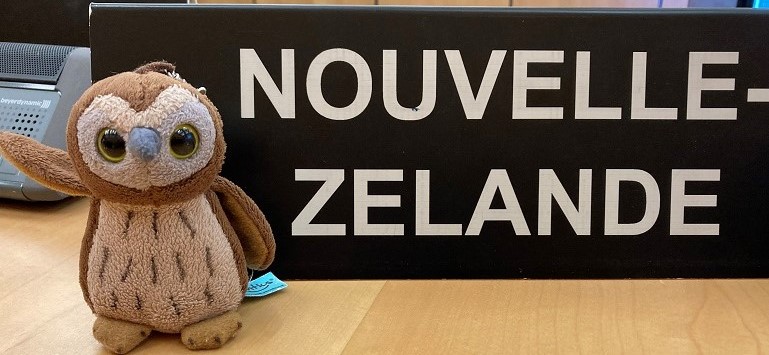The role of international organisations
International organisations represent a vital conduit for international regulatory cooperation (IRC).
On this page
International organisations offer platforms for dialogue, learning and information exchange. They provide centres for collecting data, building evidence, and advancing research projects. Importantly, they create a forum for members and stakeholders to collectively develop international instruments to better tackle common challenges and harness joint opportunities.
The types of IRC facilitated by international organisations encompass harmonised approaches as well as arrangements for multilateral mutual recognition and forms of informal cooperation. In some cases, international organisations can support enforcement cooperation by overseeing compliance and dispute settlement activities.

Photo of MBIE’s Trade and International team mascot ‘Ruru’ which is a Morepork (owl) that is native to New Zealand. Ruru accompanies team members to international meetings.
Informal cooperation
International organisations support informal cooperation through mechanisms such as regular dialogue, meetings and discussion which allow members to raise and resolve concerns, build relationships, as well as mutual trust and a shared understanding of the issues under consideration. The exchange of information through databases and reporting mechanisms strengthens mutual understanding of each member’s regulatory approach and institutional arrangements. Joint research projects and guidance documents can broaden the evidence base underpinning policymaking, tapping into the experiences and insights of members.
Formal cooperation
International organisations create an institutional setting for the development of more formal forms of IRC, whether through non-binding or binding international instruments. The development of joint declarations, setting of targets, and other non-binding instruments can enhance transparency and accountability. They can also have a strong normative effect on members. Non-binding instruments also frequently pave the way for stronger, binding forms of cooperation.
Binding instruments follow established processes of development and create high levels of compliance. These can take the form of multilateral mutual recognition arrangements, such as those developed by international accreditation, testing and metrology organisations. More frequently, binding international instruments (i.e., treaties or conventions) drive harmonisation in member approaches. Binding international instruments often include enforcement mechanisms for promoting compliance and tackling issues of non-compliance, particularly through arbitration and dispute settlement systems.
For an indication of the different types of international organisations that facilitate IRC, see:
Joint statement of international organisations in support of effective international rulemaking [PDF, 327KB](external link) — Organisation for Economic Co-operation and Development

